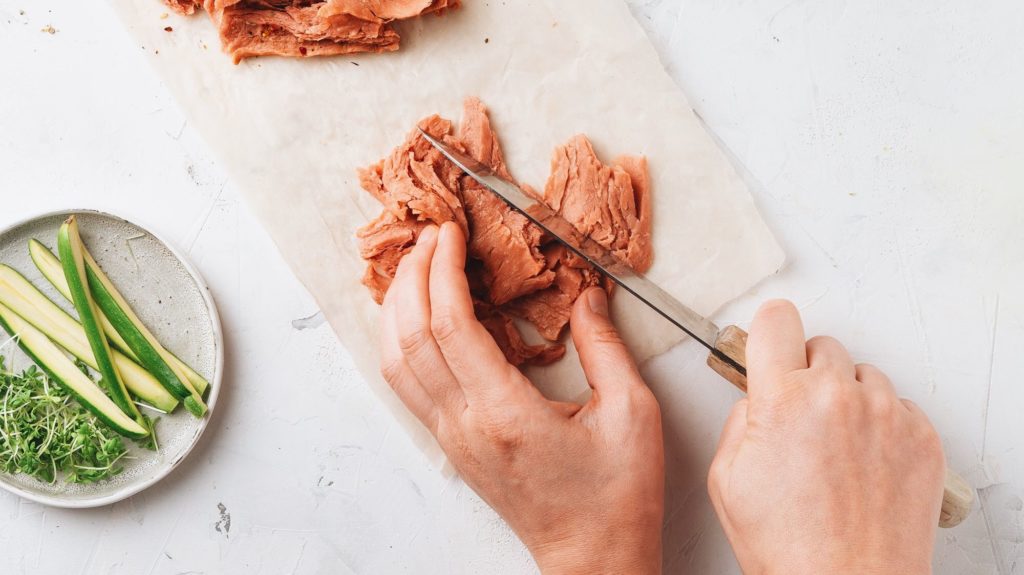Russia’s vegan food industry will be supported by an incubator for plant-based and alternative protein brands, which is set to open later this year.
The new Association of Alternative Food Products Producers (AAFPP) will launch the incubator, which is the first of its kind in Russia and the Commonwealth of Independent States (CIS).
The incubator will exclusively support food companies working on alternatives to animal-based foods and ingredients. In order to qualify for the program, startups must focus on plant-based foods and ingredients or cultivated hybrid products and related technologies such as 3D bioprinting and cell-based food production.
The AAFPP plans to offer the support of “professional and knowledgeable” mentors throughout a four-module program. This will enable participating companies to develop and elaborate their business ideas, gain unique insights into technological, legal, marketing, and financial matters, and meet with global leaders in the industry, potential buyers, and future collaborators.

Russia’s Alternative Protein Potential
AAFPP founders Julia Marsel and Tim Ponomarev are both managers of Russia’s largest food ingredients company, Partner-M, and co-founders of Greenwise — one of the nation’s first plant-based meat producers and alumni of leading global food-tech incubator ProVeg.
Through the AAFPP’s new incubator project, the pair plans to contribute directly to the development of new plant-based startups.
AAFPP members include Greenwise along with other vegan protein brands such as Not Meat, Vegafood, Meatless Foods, and more. Kazan-based cultured meat developer ArtMeat is also a member of the association. While “partnered” groups working closely with the association include ProVeg itself and the animal welfare group Voices For Animals Russia.
According to Marsel, the Russian-speaking food market is still in the “embryonic” stage. “Though, Russia and the CIS countries have a huge potential in becoming major players in the plant-based sector,” she told LIVEKINDLY.
Marsel believes that lengthy religious holidays — some involving abstinence from animal products — the low production cost of plant-based food, and agriculture’s position of priority in the national economy could make Russia a key player in the alternative protein space.
“We believe that key to this boost is to give startups a place where they can grow,” she explained.

Greenwise and Vegan Meat
Greenwise currently sells its products to Russian retail chains nationwide, as well as in the Ukraine, Belarus, and Kazakhstan. According to the company, it uses green technologies to produce fibrously-textured vegan meat with wheat, soy, and other plant-based ingredients.
The full range currently includes vegan chicken, beef fillet, and jerky, with burger patties and cold cuts coming soon.
Moving from Greenwise into the new plant-based incubator project follows the founders’ changing ideas about their area of focus, inspired by both the growing Russian plant-based food market and the rapid progression of cellular agriculture technology. It is also informed by their own experiences as a startup participant in ProVeg’s global business incubator.
“We started as a plant-based brand, but over the years we broadened the scope of our activities and now we call ourselves drivers of Russian food tech,” said Marsel at ProVeg Incubator’s Startup Demo Day earlier this month.
“We cooperate with 3D bioprinting companies and cultivated meat and fish companies creating technologies for the production of [cell-based and plant-based] hybrid products using our plant proteins as scaffold,” she added.


